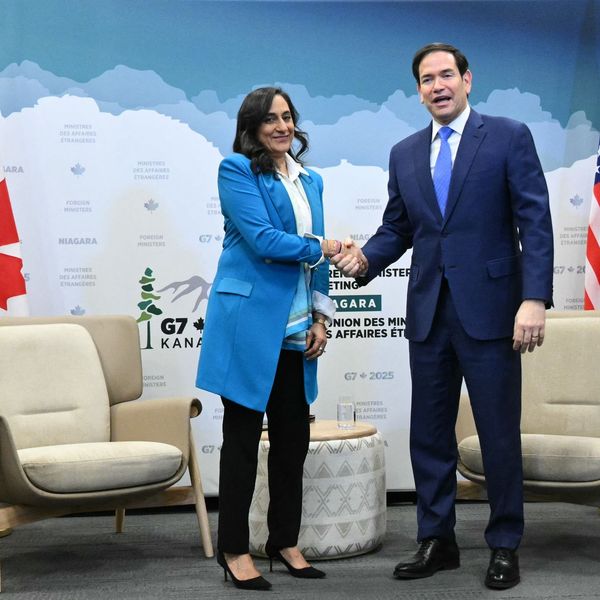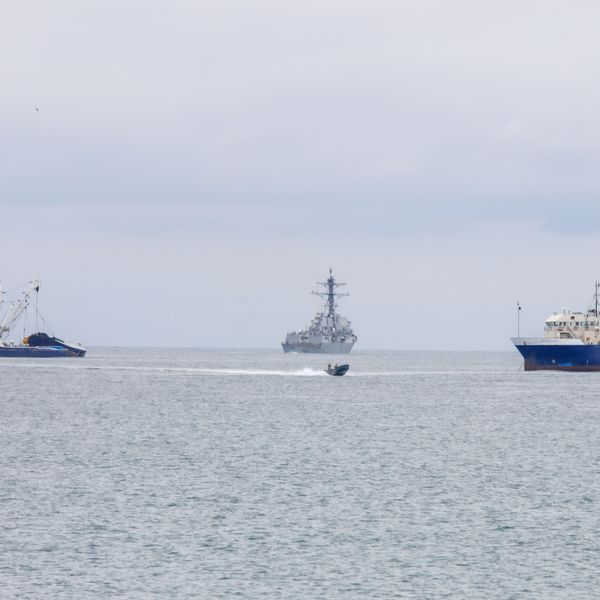Backing MSF, Human Rights Watch Says US Must Consent to War Crimes Probe
'We believe that there is a strong basis for determining that criminal liability exists,' group states in new letter to Gen. Carter
There is "strong" evidence that the U.S. military attack on a Doctors Without Borders/Medecins Sans Frontieres (MSF) hospital in Kunduz, Afghanistan two months ago constituted a criminal act, and should be investigated as such, Human Rights Watch said Monday in a letter to Defense Secretary Ashton Carter (pdf).
"The attack on the MSF hospital in Kunduz involved possible war crimes," said the advocacy group's Washington director Sarah Margon. "The ongoing U.S. inquiry will not be credible unless it considers criminal liability and is protected from improper command influence."
The 30-minute airstrike on October 3 killed at least 42 patients and staff and wounded several others. In November, the Pentagon released the summary of its internal inquiry into the bombing, which blamed the attack on "human error," a conclusion that human rights groups rejected and which MSF said provided "more questions than answers."
The Pentagon's report, as well as the military's "poor record prosecuting alleged war crimes in Afghanistan and Iraq," demonstrates the urgent need for an investigation conducted by an independent source rather than the government or the army, HRW said.
"It is essential that you publicly and explicitly clarify that ongoing investigations into the Kunduz attack include a thorough inquiry that considers the possible criminal liability of U.S. personnel, including at the command level," the letter to Carter states. "We believe there is a strong basis for determining criminal liability exists... We also call on you to take all necessary steps to ensure the investigation is independent and not subject to undue command influence."
Carter said the Pentagon's inquiry was "thorough and unbiased," but numerous critics questioned the legitimacy of the government investigating itself for possible war crimes.
"U.S. military commanders who oversaw the Kunduz military operation shouldn't be deciding who gets prosecuted for the MSF hospital attack," Margon said Monday. "The U.S. government should recognize that its resolution of this horrific incident will have repercussions for U.S. military operations far beyond Afghanistan."
MSF has also repeatedly called for the U.S. government to submit to an inquiry conducted by the International Humanitarian Fact-Finding Commission, which was created under the Geneva Conventions in 1991. The commission has said it was ready to carry out an investigation but could only do so with the U.S. government's consent.
An Urgent Message From Our Co-Founder
Dear Common Dreams reader, The U.S. is on a fast track to authoritarianism like nothing I've ever seen. Meanwhile, corporate news outlets are utterly capitulating to Trump, twisting their coverage to avoid drawing his ire while lining up to stuff cash in his pockets. That's why I believe that Common Dreams is doing the best and most consequential reporting that we've ever done. Our small but mighty team is a progressive reporting powerhouse, covering the news every day that the corporate media never will. Our mission has always been simple: To inform. To inspire. And to ignite change for the common good. Now here's the key piece that I want all our readers to understand: None of this would be possible without your financial support. That's not just some fundraising cliche. It's the absolute and literal truth. We don't accept corporate advertising and never will. We don't have a paywall because we don't think people should be blocked from critical news based on their ability to pay. Everything we do is funded by the donations of readers like you. Will you donate now to help power the nonprofit, independent reporting of Common Dreams? Thank you for being a vital member of our community. Together, we can keep independent journalism alive when it’s needed most. - Craig Brown, Co-founder |
There is "strong" evidence that the U.S. military attack on a Doctors Without Borders/Medecins Sans Frontieres (MSF) hospital in Kunduz, Afghanistan two months ago constituted a criminal act, and should be investigated as such, Human Rights Watch said Monday in a letter to Defense Secretary Ashton Carter (pdf).
"The attack on the MSF hospital in Kunduz involved possible war crimes," said the advocacy group's Washington director Sarah Margon. "The ongoing U.S. inquiry will not be credible unless it considers criminal liability and is protected from improper command influence."
The 30-minute airstrike on October 3 killed at least 42 patients and staff and wounded several others. In November, the Pentagon released the summary of its internal inquiry into the bombing, which blamed the attack on "human error," a conclusion that human rights groups rejected and which MSF said provided "more questions than answers."
The Pentagon's report, as well as the military's "poor record prosecuting alleged war crimes in Afghanistan and Iraq," demonstrates the urgent need for an investigation conducted by an independent source rather than the government or the army, HRW said.
"It is essential that you publicly and explicitly clarify that ongoing investigations into the Kunduz attack include a thorough inquiry that considers the possible criminal liability of U.S. personnel, including at the command level," the letter to Carter states. "We believe there is a strong basis for determining criminal liability exists... We also call on you to take all necessary steps to ensure the investigation is independent and not subject to undue command influence."
Carter said the Pentagon's inquiry was "thorough and unbiased," but numerous critics questioned the legitimacy of the government investigating itself for possible war crimes.
"U.S. military commanders who oversaw the Kunduz military operation shouldn't be deciding who gets prosecuted for the MSF hospital attack," Margon said Monday. "The U.S. government should recognize that its resolution of this horrific incident will have repercussions for U.S. military operations far beyond Afghanistan."
MSF has also repeatedly called for the U.S. government to submit to an inquiry conducted by the International Humanitarian Fact-Finding Commission, which was created under the Geneva Conventions in 1991. The commission has said it was ready to carry out an investigation but could only do so with the U.S. government's consent.
There is "strong" evidence that the U.S. military attack on a Doctors Without Borders/Medecins Sans Frontieres (MSF) hospital in Kunduz, Afghanistan two months ago constituted a criminal act, and should be investigated as such, Human Rights Watch said Monday in a letter to Defense Secretary Ashton Carter (pdf).
"The attack on the MSF hospital in Kunduz involved possible war crimes," said the advocacy group's Washington director Sarah Margon. "The ongoing U.S. inquiry will not be credible unless it considers criminal liability and is protected from improper command influence."
The 30-minute airstrike on October 3 killed at least 42 patients and staff and wounded several others. In November, the Pentagon released the summary of its internal inquiry into the bombing, which blamed the attack on "human error," a conclusion that human rights groups rejected and which MSF said provided "more questions than answers."
The Pentagon's report, as well as the military's "poor record prosecuting alleged war crimes in Afghanistan and Iraq," demonstrates the urgent need for an investigation conducted by an independent source rather than the government or the army, HRW said.
"It is essential that you publicly and explicitly clarify that ongoing investigations into the Kunduz attack include a thorough inquiry that considers the possible criminal liability of U.S. personnel, including at the command level," the letter to Carter states. "We believe there is a strong basis for determining criminal liability exists... We also call on you to take all necessary steps to ensure the investigation is independent and not subject to undue command influence."
Carter said the Pentagon's inquiry was "thorough and unbiased," but numerous critics questioned the legitimacy of the government investigating itself for possible war crimes.
"U.S. military commanders who oversaw the Kunduz military operation shouldn't be deciding who gets prosecuted for the MSF hospital attack," Margon said Monday. "The U.S. government should recognize that its resolution of this horrific incident will have repercussions for U.S. military operations far beyond Afghanistan."
MSF has also repeatedly called for the U.S. government to submit to an inquiry conducted by the International Humanitarian Fact-Finding Commission, which was created under the Geneva Conventions in 1991. The commission has said it was ready to carry out an investigation but could only do so with the U.S. government's consent.

